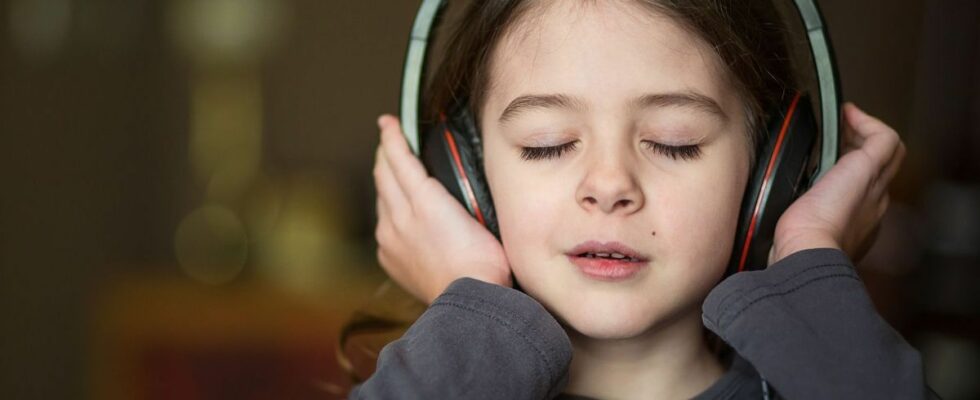Published on
Updated
Reading 2 mins.
Published on March 2, an unprecedented survey of the listening habits of children under 10 years old and their hearing health reveals worrying information that we know little about: 14% of children under 10 years old already been affected by tinnitus.
While a hearing test is carried out from birth in infants, and there is often concern about the hearing health of adolescents and those of the elderly, there has been a period off the radar until now: the hearing health of children from 0 to 10 years old. This is why the Journée de l’Audition association commissioned an Ifop study on the subject. This one collected the answers of children and parents on the habits and hearing well-being of the youngest. The results, published on March 2, are worrying.
Up to 4 hours of headphone listening per day
Undoubtedly the most striking information from this survey lies in an astonishing practice: according to those questioned, 40% of parents say that their child listens to music daily via earphones or headphones, between 1 and 4 hours a day. And this, without always checking the sound volume. Another worrying fact, in relation to listening: 14% of children under 10 have already consulted an ENT doctor for tinnitus, which represents 1.3 million children under 10. This health problem mainly concerns children over 5 years old (18%), the children of workers (19%) who may be more aware, people from the Ile-de-France region (23%) and children who use headphones or earphones daily. (28%). By illustration, when the volume of the music or the cartoon is too high, the sound can go up to the equivalent of a truck on the road. This causes microlesions in the ear. A phenomenon that is not rare: 30% of parents mention that their children have already complained of noise.
Hearing health: parents in need of information
In addition to the harmful effects of sounds for small developing ears, the other information brought to light by this survey relates to prevention. Due to a lack of information, only a third of parents are worried about their children’s hearing (even though they are much more aware of the risks associated with screens or obesity). A minority of parents (49%) believe that they are well informed about the issues of deafness and tinnitus in their child and only 29% are aware of the measures put in place by the public authorities in this area. Consequently, they are 8 out of 10 to believe that these same public authorities should make hearing a major national public health cause.
The National Hearing Day association is campaigning to introduce screenings in schools, as is already done for vision. Let’s hope they are “heard”.
